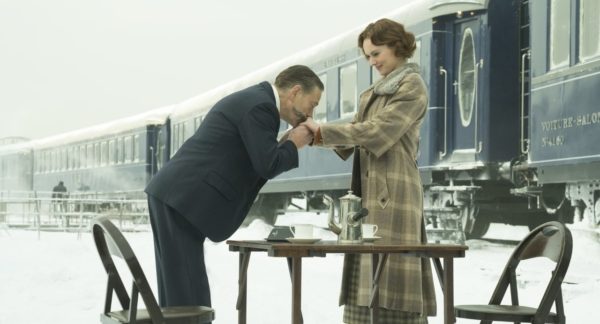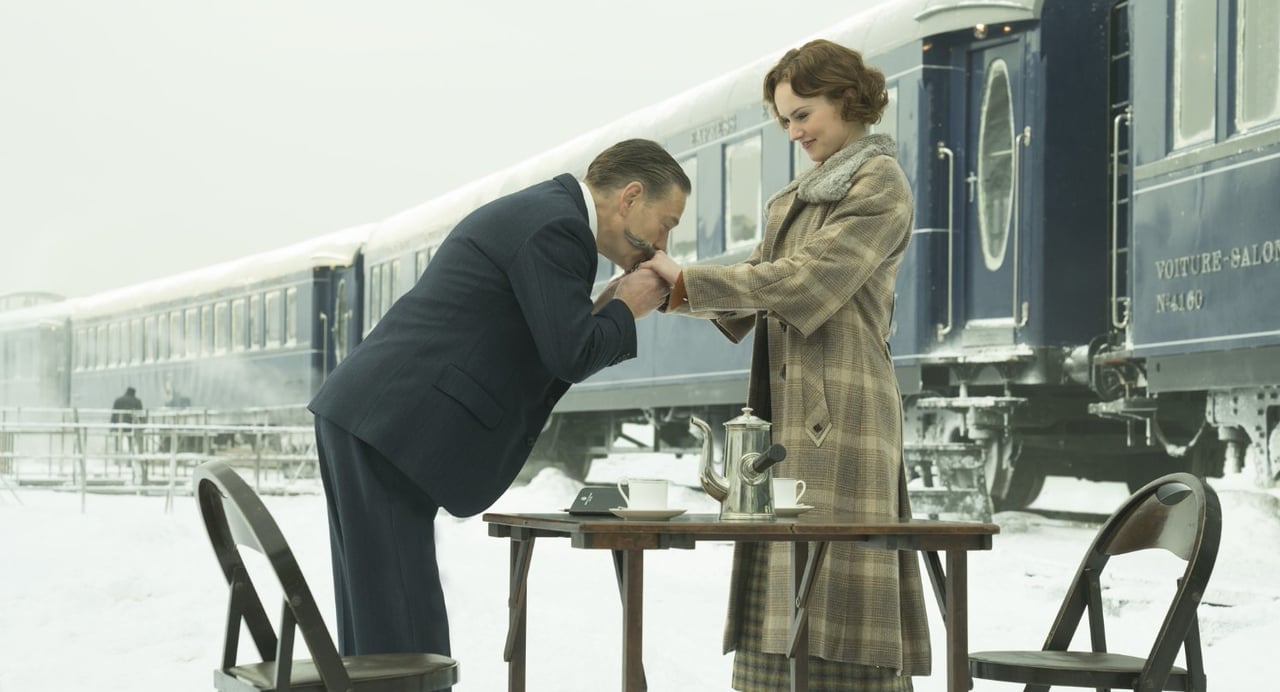
This week, Screen beat film critics Elaine Kim and Noah Howard discuss Kenneth Branagh’s new film, “Murder on the Orient Express.”
Elaine Kim: Let’s start with the Murder on the Orient Express being a thoroughly mediocre movie.
Noah Howard: It didn’t outright suck, but there was nothing to write home about.
EK: I was confused on what exactly to write about at all, because it was so instantly forgettable.
NH: It was competent in the most basic of ways in that you could follow the plot and that the many variables fall into place without you having to break out a spreadsheet. A lot of mystery movies can’t even accomplish that, so it wasn’t terrible.
EK: Yet it was so bland that they needed a melodramatic soundtrack in the background to enliven the lifeless scenes.
NH: The characters were all incredibly generic, despite the fact that each of them gets at least one entire scene devoted to them exclusively. None of them end up feeling like anything other than a trope. Even the main character’s characterized in such unimaginative ways that he looks forlornly at a portrait of a woman, which cracks — and we’re supposed to see that as something sad. It’s such an overused cliche that it makes me more likely to laugh at him than commiserate.
EK: And we’re never told the identity of this mystery woman.
NH: Maybe if either of us had read a bit of Agatha Christie we’d catch on to it a little more.
EK: The film fails in that respect, since it’s supposed to be both for Christie fanatics and for know-nothings. Then there’s Kenneth Branagh’s fake French accent, which is kind of distracting —
NH: And annoying.
EK: Right. Given his strong performances in “Hamlet” or “Dunkirk,” it was a big disappointment. The beginning of the movie was so haphazardly orchestrated, it seemed as messy as “Aladdin”’s Agrabah marketplace…
NH: It tries to set up a sort of fun, whimsical feeling that you might find in somewhere like Indiana Jones and it tries to use that feeling to establish some humor behind the main character and introduce some of the side characters. But in reality, it doesn’t do that particularly well and makes you count down the many, many minutes until they actually get on the train and the many, many more minutes until the titular murder occurs.
EK: The movie’s definitely not a film noir. At first glance, you could probably mistake it for some bright-eyed Disney movie. And then once they get on that train, you’d suppose maybe that quirky theme will be continued, but no, it comes to a halt and becomes … boring. I was more interested in the passing scenery outside the train than at what was going on inside it at times.
NH: Part of that is the camerawork, which is completely uninspired. This is a movie about people stuck on a train with a murderer, an enclosed space with no way out. You know, Film School 101 tells us that you should be using tight camera angles, long shadows, close-up shots, anything to make it feel constricted and …
EK: Claustrophobic.
NH: In reality, the camera doesn’t call attention to itself in any way.
EK: Except for that one scene when the camera refuses to show the murder scene of Mr. Ratched. What was the point of that?
NH: When the murder is discovered, somehow they discovered that the best angle for this was literally straight above the characters’ heads that you can’t see their faces, not even the murder itself.
EK: Exactly. The build-up to the murder was so weak, it was like announcing something on the dinner menu. Even when the solution to the mystery is revealed, it was anticlimactic.
NH: And completely underwhelming. Kenneth Branagh decided to precede the climactic scene with a big, exciting brawl, which makes the actual climax — a slow, drawn-out cheesy scene — feel really dull in comparison. Which is saying a lot, since the action scene was barely adequate.
EK: Apparently the action scene wasn’t in the actual novel at all. It was completely made up just for the sake of the movie.
NH: Just something to put in the trailer. I mean the cast is incredible. Basically every actor is a big name, but they don’t use them for anything.
EK: You have Judy Dench, Daisy Ridley, Johnny Depp, Willem Dafoe, the director himself and a lot more we’re not listing, because I could go on forever. There were a lot of stars, but not a lot of spark.
NH: The film never bothers to put them into one place. There are a couple of scenes where they’re all sitting together at the tables, but that’s when Poirot’s making a monologue, so they’re not interacting with each other. Most of the time it plays out as a series of interviews between Poirot and his suspects. You could plausibly re-edit them in any order and it wouldn’t make a difference. Each scene itself is fine, but they never cohere.
EK: I was wondering how such an iconic murder mystery be so underwhelming? I can imagine a million other ways in which this movie could have been filmed, but Branagh chose the safest and most dispassionate method to do so.
“Murder on the Orient Express” is in theaters now.
Contact Elaine Kim at elainkm ‘at’ stanford.edu and Noah Howard at noah364 ‘at’ stanford.edu.
